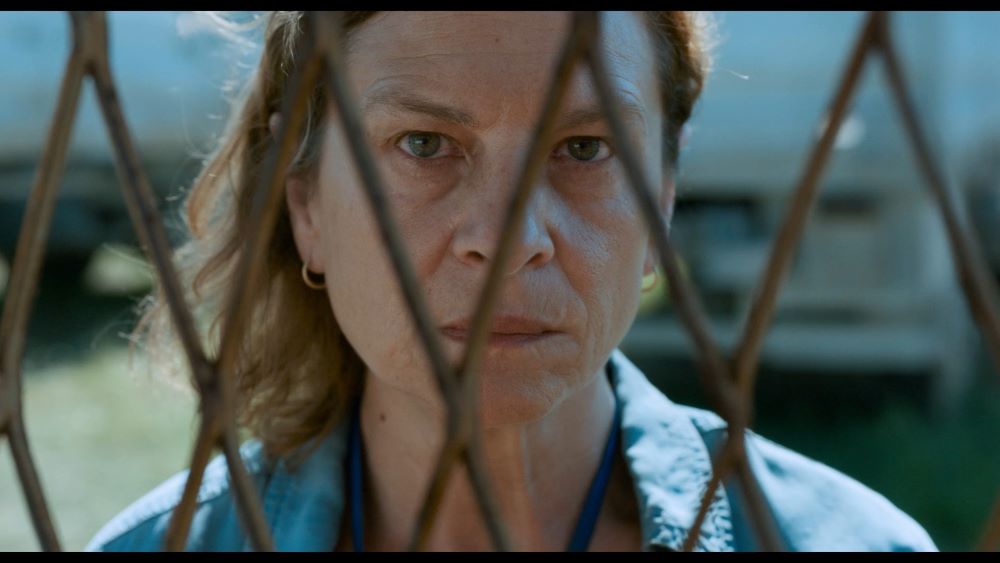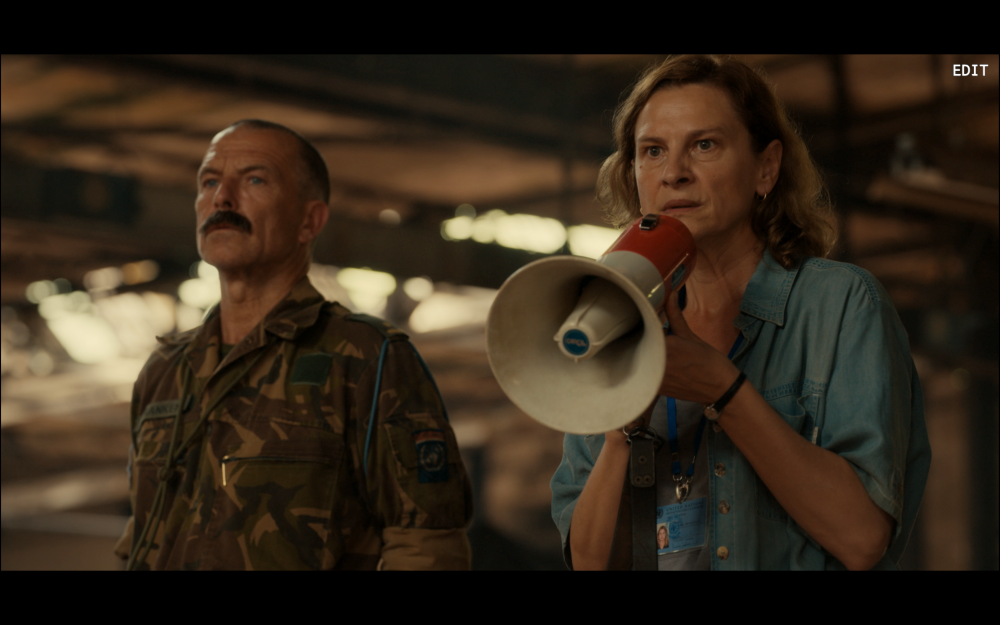
Suspenseful, taut, and deeply moving, Quo Vadis Aida? follows one woman over the course of a harrowing, fateful couple of days, as she tries to protect her family. The horrors of war are almost impossible to convey to anyone who has never experienced them, our minds cannot grasp the enormity of loss from a distance. Jasmila Žbanić’s retelling of the Srebrenica massacre of 1995, in its close focus on one woman, lets the viewer see the events unfold on an intimate, individual, human, scale – something we can understand and feel. Although it is not a documentary, but rather a fictional narrative, the film is based on true events: the massacre of over 8,000 Bosnian men and boys in July 1995 in Srebrenica during the Bosnian War. Some of the characters, such as UN Colonel Karremans and Serb General Ratko Mladić are based on their real-life counterparts, however, Aida, the film’s protagonist, is a fictional character loosely based on the memoir Under the U.N. Flag: The International Community and the Genocide in Srebrenica by Hasan Nuhanovic, a Bosnian Muslim who worked as a translator for the UN. Heart-wrenching in its depiction of the relative ease with which the violent and powerful can crush an entire nation, the sad inefficacy of bureaucratic decision-making, the indifference and reluctance of others (nations, international alliances, neighbors, bystanders, you and me) to intervene or help for fear that they too might be at risk, Quo Vadis Aida? is painfully timely and relevant.
Jasna Đuričić delivers a spectacular performance as Aida, a former teacher who works as a translator for the UN. We first see her sitting at home with her husband Nihad (Izudin Bajrović) , and two sons, Sejo (Dino Bajrović) and Hamdija (Boris Ler). All are silent, the atmosphere is tense. As the camera closes in on Aida, there is fear in her eyes, but there is also a look of determination. Her role places her in a privileged position, with access to much more information than the average citizen, yet it also means that she walks a tightrope between her loyalties and the responsibilities of her job. This tension is apparent from the start, as she translates a meeting between the Mayor of Srebrenica (Ermin Bravo) and Colonel Karremans (Johan Heldenbergh). Officially, Srebrenica had been declared a ”safe zone” yet the Mayor challenges Karremans, asking “How is Srebrenica a safe zone if the Serbs can enter?” She must then also translate Karreman’s assurances that the Bosnians are safe in their homes and the UN has issued an ultimatum to the Serbs, which, if violated, will lead to airstrikes by NATO in defense of the Bosnians. Her translation is impeccable, yet her eyes reflect the helplessness she feels.

Intelligently assessing the situation, Aida senses the impending danger. Strong and resourceful, she is determined to help her family, yet she cannot avoid being thrust into one moral dilemma after another as events unfold. Serbian soldiers enter Srebrenica, and the residents flee en masse to the only safety they can imagine: the UN compound. But reality and bureaucracy impose limits on this sanctuary. Several hundred enter, but at some point, the gates close, and thousands of refugees are left outside the gates. Žbanić deftly conveys the chaos, noise, confusion and fear of those left behind. Aida has no choice but to translate the edict of the UN officials – no more may enter. And among those outside the gates are her husband Nihad and older son Hamdija.
With a first-row seat to witness the helplessness and ineffectiveness of those officially in charge at the UN compound, Aida realizes she must rely on her own intelligence and instincts to protect her loved ones. Jasna Đuričić depicts the moral dilemmas of the character, surrounded by a multitude in need, yet desperate to save her family. Small moments – cigarette breaks and passing conversations – offer insight into her character and her life before the war. A dream-like interlude invokes the memory of a party, Aida dancing to the music, lively and carefree. Yet as the dancers join hands in a circle, the camera focuses on each individual, and as these women and men look somberly into the camera – directly at us – we feel the magnitude of the life that has been lost.
Quo Vadis, Aida?
Bosnia Herzegovina, Austria, Netherlands, Germany, Poland, France, Norway, Turkey/2020/103 min/Bosnian, English, Dutch with Hebrew subtitles
Written and directed by Jasmila Žbanić; Cinematography: Christine A. Maier; Editor: Jaroslaw Kominski; Music: Antoni Komasa-Lazarkiewicz; Cast: Jasna Đuričić, Izudin Bajrović, Boris Ler, Dino Bajrović, Boris Isaković.





